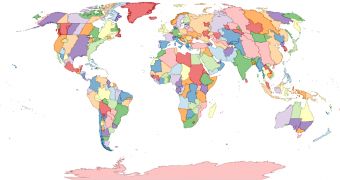The Internet Corporation for Assigned Names and Numbers (ICANN) has announced that it's taking over a time zone database, used by most servers, many computers and many websites worldwide, which was under threat of becoming unavailable.
Time zone data is one of those things that most people don't think about yet rely on many times a day. It is used by computers to determine the local time based on its geographical location.
For example, if you set your location to Berlin, Germany, or Sidney, Australia, a time zone is used to determine what the local time should be compared to the standard Greenwich Mean Time (GMT), or Coordinated Universal Time (UTC).
It's also used for things like daylight savings and other occasions when the local time changes.
Unix, Linux, Mac OS X even Solaris uses a single source for time zone data and that source was recently threatened through a copyright lawsuit of all things.
The tz database had been maintained by volunteers and hosted on a server at the US National Institutes of Health for many years.
Now, the two maintainers have been sued for copyright infringement over some historical time zone data that may have come from The American Atlas to which Astrolabs, a company that makes astrology software, bought the rights to.
The lawsuit won't probably go too far, but the two volunteers probably don't have the resources or the time to deal with it. The tz database went down last week over the issue.
It has now been restored at a backup location and ICANN, technically Internet Assigned Numbers Authority (IANA), which is operated by ICANN, will host it. The mailing list where changes to the time zone data is discussed is already hosted by IANA.
ICANN is unconcerned about the lawsuit and has said that it intends to maintain the database, which is crucial to many websites and, more directly and importantly, crucial to the servers that power the internet, as long as possible.
The lawsuit seems week at best. The core issue is that no one can copyright facts, under US law, and it's hard to argue that time zone data is not factual, but artistic expression.

 14 DAY TRIAL //
14 DAY TRIAL //